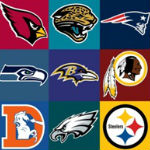 Free agency in professional sports happens when a player is eligible to sign with any club or franchise. It usually happens when a player’s contract with a team has expired and no new deal has been struck. So the player is then free to place himself on the open market and get the highest possible value in exchange for his skills on the playing field and his contributions to the organization.
Free agency in professional sports happens when a player is eligible to sign with any club or franchise. It usually happens when a player’s contract with a team has expired and no new deal has been struck. So the player is then free to place himself on the open market and get the highest possible value in exchange for his skills on the playing field and his contributions to the organization.
A player can also be referred to as a free agent who is presently under contract to one club but who is allowed to solicit contract offers from other teams. In some cases the free agents options are limited by league rules aimed at maintaining some sort of parody among the teams.
Free agency came into popular use back when sports leagues stopped using what was called a “reserve clause” which gave a club a repetitive option to renew the contract for one or more years but did not allow the player to terminate the contract. Sort of one sided for the teams back in those days.
There are currently three types of ‘free agents’ used in professional sports. An ‘unrestricted free agent’ is a player who is not under contract obligation to any team. Either they have been released by a club or perhaps had their contract expire without being renewed.
Those are current players. For newcomers, the ‘unrestricted free agency’ means that the player went undrafted in the league’s annual draft of amateur athletes. These guys and gals are free to sign with whoever makes them the most attractive offer.
A restricted free agent, on the other hand, is a player that already has an affiliation with a team but is who is free to seek offers from other teams for a new contract. But, if an offer is presented, the player’s current club has a chance to match (or at least come to within 10%) the counter offer. If they do, then the player is then obligated to remain with his original team… for another year at least.
It occasionally happens that, if the original team chooses not to match the other team’s offer for a restricted free agent, the new team then must provide some draft selections as compensation to the original team for losing a valuable player.
Most American professional sports hold an annual draft with the team posting the worst record in the league the year before making the first choice and so on. If a player has not been chosen at the conclusion of the draft, they are then considered unrestricted free agents and are free to sign contracts with any club they choose.




